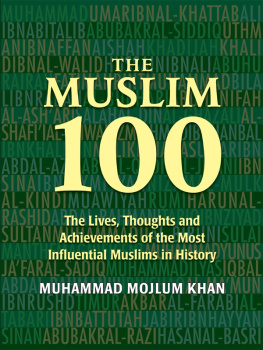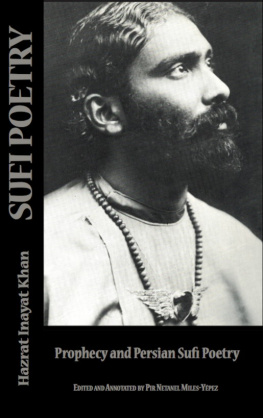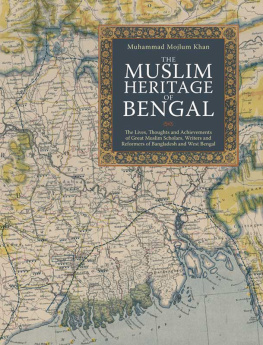GARDENS OF THE RIGHTEOUS
Riyadh as-Salihin of Imam Nawawi
Translated from the Arabic by
MUHAMMAD ZAFRULLA KHAN
With a Foreword by
C. E. BOSWORTH
Professor of Arabic Studies in the University of Manchester
1996
ISLAM INTERNATIONAL PUBLICATIONS LTD.
Gardens of the Righteous
(Riadh as-Salihin)
Published with the Permission of Routledge by:
Islam International Publications Limited
2 Park Square, Milton Park, Abingdon, Oxon, OX14 4RN
First Published 1975
Reprinted 1980
Reprinted 1989
Reprinted 1996
Transferred to Digital Printing 2007
Muhammad Zafrulla Khan
ISBN 1 85372 568 4
(Routledge edition ISBN 0 7007 0073 0)
All rights reserved. No part of this book may be reproduced in any from without prior written permission from the Publisher, except for the quotation of brief passages in criticism.
Publishers Note
The publisher has gone to great lengths to ensure the quality of this reprint but points out that some imperfections in the original may be apparent
FOREWORD
It has long been recognised by western scholars how valuable is the vast corpus of Hadith (sc. the sayings of the Prophet, his companions, the early Caliphs and other leading Muslim scholars) for the study of early Islam. The pioneer efforts of the great Hungarian orientalist Ignaz Goldziher now available in English as Volume II of his Muslim Studies (London 1971) demonstrated how much light these traditions threw on the religious development of Islam and on the political and sectarian disputes of its first three, formative centuries. Subsequent scholars like the late Joseph Schacht have examined critically the body of Hadith and have corrected some of the misconceptions which had arisen over its historical interpretation; the results of these inquiries were embodied in his difficult but very significant book, The Origins of Muhammadan Jurisprudence (Oxford 1950).
Yet the average Muslim believer knows the Hadith not as a historical document, but as a fundamental element in the vital fabric of his faith, which has been second only to the direct revelation of God in the Quran itself. For the Muslim community, the Hadith has traditionally provided a norm of conduct and behaviour in the ethical sphere, and a source of legal prescriptions in the practical one, a means of following the sunna or example of the Prophet and of the generations of pious, early Muslims, as-salaf as-salihun. Where the Quran has not been explicit, the Hadith has often supplied guidance, providing an intermediate source of knowledge between the text of the Holy Book itself and the ratiocinations of the religious lawyers, the fuqaha, who had recourse, when all else failed, to such principles as analogical reasoning and personal judgement.
However, it is not easy for the Muslim today, even if he be a native Arabic speaker, to read the Hadith; the language is archaic and at times difficult, and indeed, philologists and grammarians of the classical period came to regard the Hadith as a valuable quarry for rare words. Although many translations of Hadith collections, or of selections from it, have been made into the other great Islamic languages like Turkish, Persian and Urdu, there are few available in western European languages. The most important of these is the French translation by O. Houdas and W. Marais of the Sahih of Bukhari, as Les traditions islamiques (Paris 190314, 4 vols.). Also, various of the anthologies of Islamic religious and devotional literature in translation devote some space to the Hadith: especially valuable here is the section on Tradition in the late Arthur Jefferys A Reader on Islam (The Hague 1962), pp. 79250.
The present book provides a translation by Muhammad Zafrulla Khan (who has already given us a translation of the Quran, The Quran, Curzon Press, London 1971) of the Riyad as-Salihin, literally Gardens of the Righteous, written by the Syrian Shafii scholar Muhyi ad-Din Abu Zakariyya Yahya b. Sharaf an-Nawawi (123378), who was the author of a large number of legal and biographical works, including a celebrated collection of forty well-known hadiths, the Kitab al-Arbain (actually containing some forty-three traditions), much commented upon in the Muslim countries and translated into several European languages. His Riyad as-Salihin is a concise collection of traditions, which has been printed on various occasions, e.g. at Mecca and Cairo, but never before translated into a western language. Hence the present translation by Muhammad Zafrulla Khan will make available to those unversed in Arabic one of the most typical and widely-known collections of this type.
| Manchester, 1974 | C. E. BOSWORTH |
INTRODUCTION
The Holy Quran is the one fundamental source of all Islamic values. These values were illustrated in the life of the Holy Prophet (on whom be peace): You have in the Messenger of Allah an excellent exemplar for him who hopes to meet Allah and the Last Day, and who remembers Allah much (33.22). O ye who believe, obey Allah and obey His Messenger and those who are in authority among you. Then if you differ in anything, refer it to Allah and His Messenger if you are believers in Allah and the Last Day. That is the best and most commendable in the end (4.60).
The object of human existence being the winning of Allahs pleasure, the means for the attainment thereof is obedience to Allah, and the visible illustration of that ideal is to be found in the Holy Prophet. Announce: If you love Allah, then follow me, Allah will then love you, and forgive you your faults. Allah is Most Forgiving, Ever Merciful. Call on them: Obey Allah and the Messenger, then if they turn away, let them remember that Allah loves not the disbelievers (3.3233). Whatever the Messenger gives you, that take; and whatsoever he forbids you, from that abstain. Be mindful of your duty to Allah. Surely Allah is Severe in retribution (59.8).
The highest spiritual rewards are attainable only through obedience to Allah and the Messenger: Whoso obeys Allah and the Messenger shall be among those upon whom Allah has bestowed His favours the Prophets, the Faithful ones, the Martyrs and the Righteous and excellent companions these are. This is Allahs grace and Allah is All-Comprehending (7.7071).
It thus became necessary that a group of people should be trained and disciplined in Islamic values by the Holy Prophet both by his precept and his example. In the discharge of this assignment all directions given by the Holy Prophet were binding and were revered and carried out as having the authority of the Divine in their support, for in carrying out his prophetic functions the Holy Prophet was an instrument of the Divine: He does not speak out of his own desire; it is revelation sent down to him (53.45).
It had to be so, for obvious reasons. The Holy Quran left many matters to be regulated by the Holy Prophet. The Salat was prescribed very early in the Meccan period but the content and the manner of the performance of the services was left to be prescribed and illustrated by the Holy Prophet. That is why through the centuries and throughout the House of Islam, the five daily services have followed the pattern set by the Holy Prophet. The same applies to the Fast of Ramadhan and indeed to all ordinances and prohibitions of Islam.











